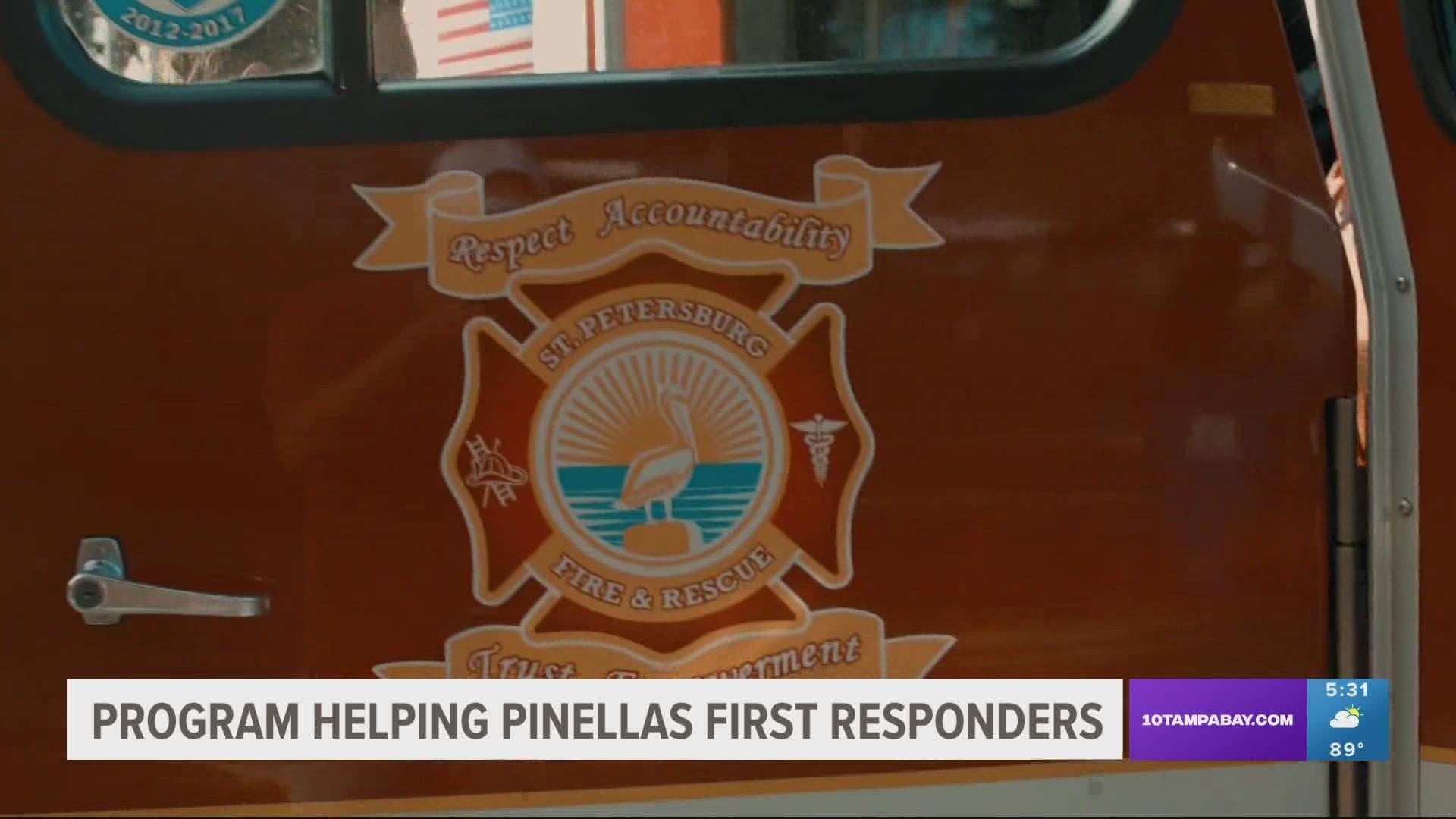LARGO, Fla. — Pinellas County leaders are hoping a new foundation will encourage more first responders to seek help.
They formally launched the Mental Health For Heroes Foundation. First responders can seek free, anonymous services from counselors with either former experience in the field or with specialized training for those in the profession.
"They deal with everyone else's crisis of the day, but they too have issues in their personal and professional lives that they need help with," Sheriff Bob Gualtieri said.
While traditional mental health services are available, Gualtieri said they've been underused for two main reasons: stigma and lack of relatability with providers.
The stigma associated with seeking help is preventing those in the field to get proper care, Gualtieri said. He hopes anonymous services can push them to pursue that care.
"We tried to get the message across that that's not true. It's okay not to be okay and that getting help is not just okay, but it is encouraged," Gualtieri explained.
Gualtieri said having those knowledgeable about the profession is another key component. He hopes that relatability will allow first responders to feel more comfortable and trust their providers.
Already, the program has been available to first responders this year with about 50 members from the sheriff's office seeking help, along with 170 first responders county-wide.
However, county leaders hope with the formal launch, even more will seek help from here on out.
So far this year, at least 123 first responders have taken their lives, according to 1st H.E.L.P.
The CDC has noted first responders may be at elevated risk for suicide because of the environments in which they work, their culture, and stress, both occupational and personal. Law enforcement officers and firefighters are more likely to die by suicide than in the line of duty.
The foundation is funded through some grants, but Gualtieri said it's primarily getting financial support from the community.
HEROES is being established with more than $500,000 in seed money from Bay area companies and foundations, the organization stated. The aim is to provide an average of 250 hours of services per month.

